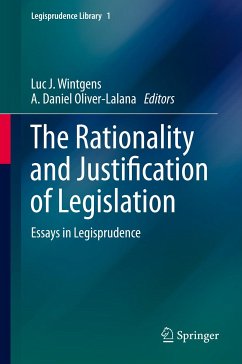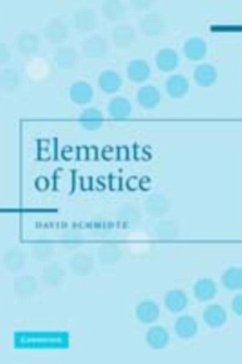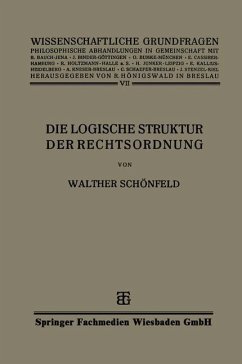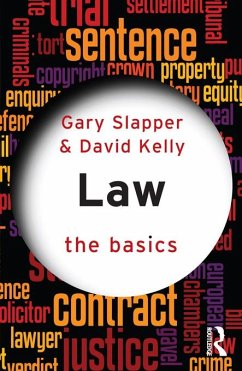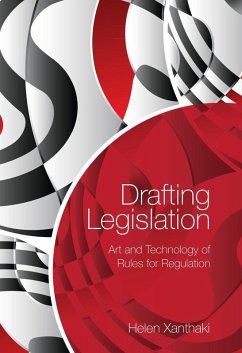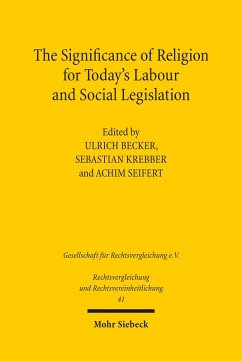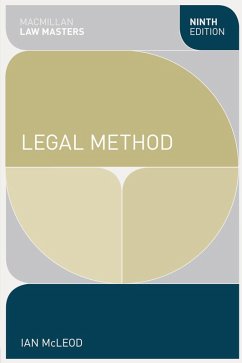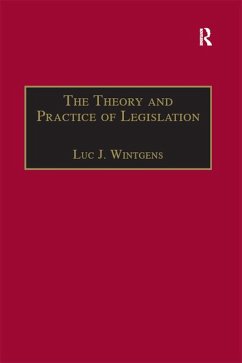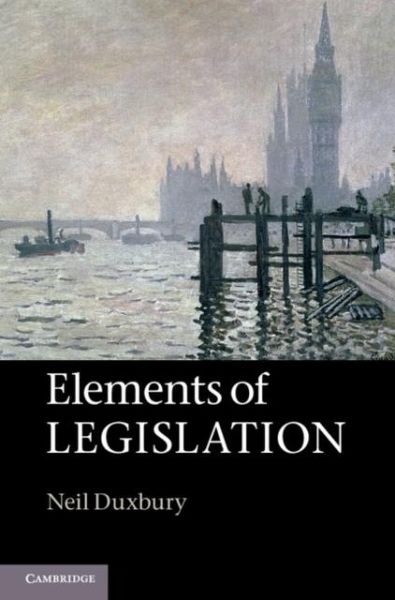
Elements of Legislation (eBook, PDF)
Versandkostenfrei!
Sofort per Download lieferbar
25,95 €
inkl. MwSt.
Weitere Ausgaben:

PAYBACK Punkte
13 °P sammeln!
In Elements of Legislation, Neil Duxbury examines the history of English law through the lens of legal philosophy in an effort to draw out the differences between judge-made and enacted law and to explain what courts do with the laws that legislatures enact. He presents a series of rigorously researched and carefully rehearsed arguments concerning the law-making functions of legislatures and courts, the concepts of legislative supremacy and judicial review, the nature of legislative intent and the core principles of statutory interpretation.
Dieser Download kann aus rechtlichen Gründen nur mit Rechnungsadresse in A, B, BG, CY, CZ, D, DK, EW, E, FIN, F, GR, HR, H, IRL, I, LT, L, LR, M, NL, PL, P, R, S, SLO, SK ausgeliefert werden.




